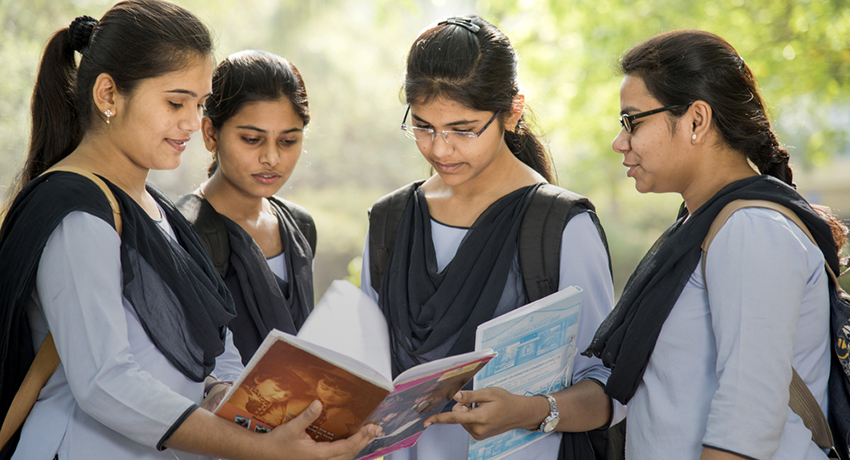For decades, global policymakers and NGOs have advocated for supporting women’s inclusion in decision-making. However, young women are often forgotten as they have ‘aged out’ of aid programs targeting under-18 participants but are also marginalized in programs targeting women’s leadership, particularly in the Asia-Pacific region.
The Australian Department of Foreign Affairs and Trade (DFAT)’s investment in young women in this region therefore recognizes that they are important in their own right and should be supported and listened to. As one policy maker explained:
I mean we do talk about gender equality and women’s empowerment all the time but we don’t really focus on young women and to build their leadership skills. I think it’s very important particularly in the region, South East Asia and the Pacific region to – for any kind of program to drive that need otherwise they just get left out.
As scholars interested in both youth participation and gender equity, we are fortunate to have the opportunity to partner with Global YWCA to conduct research and evaluation on their approach to young women’s leadership through the RiseUp! Program. This program has been delivered in 10 countries across the Asia Pacific region (Solomon Islands, Papua New Guinea, Samoa, Fiji, India, Bangladesh, Si Lanka, Thailand, Myanmar and Nepal) and continues in 9 of those locations.
Targeting young women aged 18-30, the program offers training on leadership, violence against women, human rights, and sexual and reproductive health rights. Through the train-the-trainer model employed in RiseUp!, young women have the opportunity to learn from peer mentors as they work to create safe spaces to engage in these sometimes challenging topics.
While we are still collecting and analyzing data, insights into why young women’s leadership matters are emerging. The case for young women’s leadership is multi-pronged: first, young women’s leadership programs like Rise Up! can offer focused attention on educating young women about their rights, particularly on issues that uniquely or disproportionately impact them, such as early pregnancy and exclusion from decision-making based on age and gender.
Young women’s leadership programs like Rise Up! can offer focused attention on educating young women about their rights, particularly on issues that uniquely or disproportionately impact them.
Second, it provides a peer-support network for young women seeking to advocate around how those rights might be realized and sustained. For example, one young woman reported how after undergoing the YWCA training she went back to her village and shared what she had learned with other young women, including her husband’s niece, who is a young single mother. She encouraged her to continue her education, despite being a young mother, explaining that access to education is her right. Having been a young mother herself, she felt uniquely placed to share with other young women in her village as a peer educator.
Young women also report that this network supports them to make life decisions that they might not have otherwise felt that they have the right or courage to make. For example, this same young woman mentioned above explained that since she completed the training she now feels she has the skills and confidence to comfortably negotiate with her husband around when they have sex.
Thirdly, it ensures the sustainability of movements seeking to advance effective leadership, the end of violence against women, and the promotion of human rights, as well sexual and reproductive health and rights. After all, today youth around the world are the largest youth cohort in global history and account for 1.8 billion of the global population. Making up around half of that group, young women are crucial actors in ensuring today’s movements are inclusive and also that these movements continue in the future.
Finally, it offers new insights from a diverse group of frequently marginalized actors, which research suggests leads to better decision-making overall. As Ms. Tanya Bennett of the Australian Permanent Mission to the UN stated at the recent Youth Forum ahead of the UN Human Rights Council, “We’ve got to work intergenerationally….The young people coming through are going to have to tackle the problems of our day…Countering Violent Extremism (CVE), climate change…[and others]… requires change across generations.” Likewise, she said, “We need a mentality of partnership where we see youth as participants and leaders.” Otherwise how can these issues that cross generations be addressed while failing to address whole generations?
Making space for young women’s leadership may reap benefits not only for young women, but for all members of the community interested in ending violence against women, enacting and educating communities on human rights, and pursuing sexual and reproductive health rights.
Making space for young women’s leadership may reap benefits not only for young women, but for all members of the community interested in ending violence against women, enacting and educating communities on human rights, and pursuing sexual and reproductive health rights. At a public panel during the recent 2017 Pacific Feminist Forum, a young woman participating posed this question to the panel:
What are some of the ways that you create safe spaces for young women where they don’t feel intimidated and they feel empowered to lead and be part of the decision-making process?
Policymakers and practitioners interested in leadership may do well to reflect on the question.




